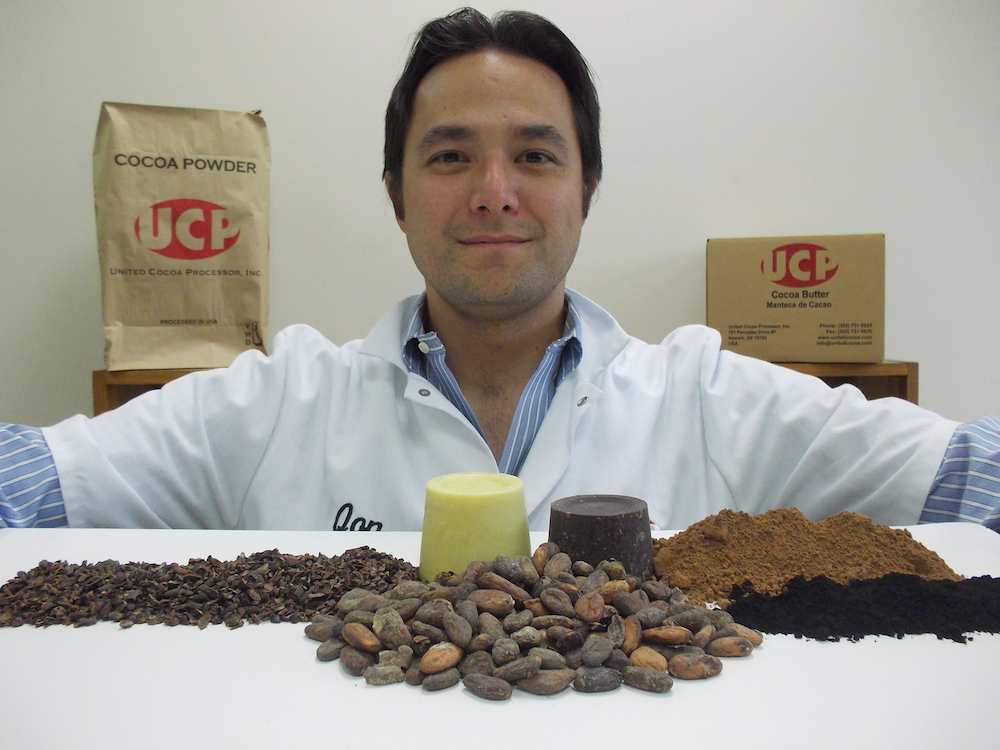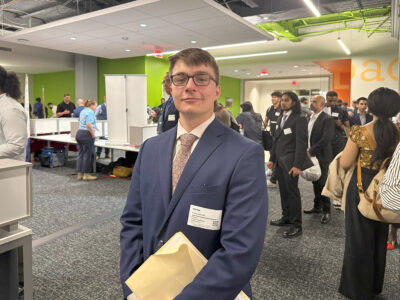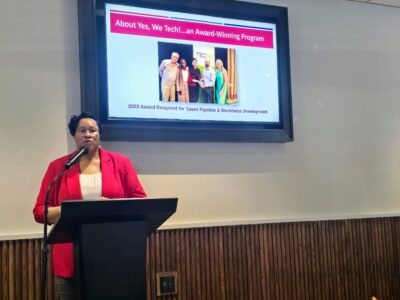Jonathan Liu, president of United Cocoa Processor, Inc., is smart. You can tell just by talking to him.
This is a man with a bachelor’s degree in computer engineering from Villanova University and a master’s degree in electrical engineering and computer architecture from the University of Colorado.
With all his technological acumen you can imagine numerous career paths that Liu would be more than qualified for. But agriculture would not be one of them.
Liu, 33, grew up in São Paulo, Brazil where his family owned a cocoa processing company. “I had always worked in the business as a kid, but did not know what I could do in the business with a computer engineering degree,” said Liu. “Now it has become a lot more obvious as tech has boomed and become more pervasive in the marketplace.”
###
Liu left Brazil in 1998 to attend college in America right around the same time his family expanded their cocoa business to the U.S., forming United Cocoa Processor, Inc. (UCP) in Newark, Del.
Liu’s family chose to build their business in Delaware because, among other reasons, 75 percent of America’s cocoa arrives at Philadelphia-area ports. Most major cocoa manufacturers have plants near Philadelphia and incorporating in a business-friendly state like Delaware seemed to make a lot of sense.
As Liu worked towards his degree, his father worked on building the family business, importing workers from Kraft General Foods in Dover to help him run his company. UCP imports most of its beans from Brazil and turns them into a variety of custom butter, powder and liquor cocoa products. The company’s most popular product is its natural cocoa powder.
In 2006 Liu left a relatively new job working with UNIX systems at Hewlett-Packard to take over the family business, after his father’s untimely death a year earlier. As president of UCP, Liu said he has been involved with “a little bit of everything, including finance, IT and working with suppliers and pricing mechanisms.” Still, he says his biggest contribution to the business is a unique computer system he built that aims to properly assess and control the risk that his business runs.
As Liu explains it, his business processes an exchange-traded agricultural commodity and the pricing of his raw materials and finished product is volatile. Many of UCP’s sales contracts are anchored on the same exchange as their raw material, the cocoa bean, but the pricing of the sale is reliant on a derivative-like structure which makes each contract vary to different degrees as the exchange moves.
With each tick of the exchange, the profitability of everything will fluctuate.
Given all this market volatility, Liu decided he needed a system designed to mitigate this risk by providing instantaneous access to the position of his company against the cocoa market. Knowing where his business stands at any moment gives Liu the ability to financially hedge his risk using the futures exchange and thus choose how much risk he is willing to take at any point in time, with a high degree of accuracy.
“There is quite a bit of risk you run with cocoa processing,” explained Liu. “You might start with one ton of beans but you do not end with one ton of product. Our system is designed to assess all the risk we can get with processing cocoa. When exchanges go up and down we can react quickly. We know where we stand at any given time.”

Cocoa beans. (Photo by Flickr user Nick Hobgood, used under a Creative Commons license)
Liu has found that while other, larger, cocoa processing plants use a similar system, the size and scope of most of them makes it very difficult to implement on a small scale. While most companies track their own positions, it is typically only the largest companies who can afford to implement a fully integrated risk management system. Liu and a friend built UCP’s system from the ground up, targeting specifically the unique dynamics of the cocoa market and including all the factors which play a role in position tracking.
“The moment raw data is generated, whether it be from the production department, the trading desk, the warehouse teams, or the commercial department, the total company position is instantaneously adjusted,” said Liu.
According to Liu, UCP has experienced “substantial growth” over the past two years with his system playing an important role.
“Our system leverages the best technologies available today at a fraction of the traditional cost,” said Liu. “We can accomplish what I consider to be big-data-like processing capabilities at a small business scale.”
Before you go...
Please consider supporting Technical.ly to keep our independent journalism strong. Unlike most business-focused media outlets, we don’t have a paywall. Instead, we count on your personal and organizational support.
Join our growing Slack community
Join 5,000 tech professionals and entrepreneurs in our community Slack today!




